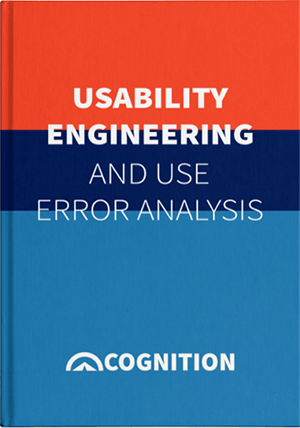Cognition Blog
Our blog navigates product development and compliance for the life science industry. Our solutions save time and money, delivering products with less risk.

By:
Cognition Corporation
April 2nd, 2019
What does it take to build a robust risk management program at your life science organization?

By:
Cognition Corporation
March 28th, 2019
In February 2019, FDA published a final guidance document that expanded parts of its 510(k) premarket notification program. The guidance establishes a new pathway: The Safety and Performance Based 510(k). With this novel premarket pathway comes several new opportunities and benefits to device manufacturers, plus some challenges. Understanding these benefits and challenges together—as well as where the Safety and Performance 510(k) fits in the premarket environment—can help your organization better navigate your device’s path to regulatory submission.

Subscribe to the blog and get this guide for free

By:
Cognition Corporation
March 26th, 2019
In order to lay the foundations of a robust risk management program at your life science organization, many important activities must be undertaken. One particularly critical component worth considering is an iterative approach to risk management.

By:
Cognition Corporation
March 21st, 2019
The design and development planning stage can be an exciting time for your life science organization. However, it can also be stressful. Between making sure your teams can handle bringing your product from concept to realization and ensuring both compliance and quality throughout the process, there’s a lot you’ll have to manage. This can be very overwhelming.

By:
Cognition Corporation
March 19th, 2019
Premarket notification is an intricate process for medical device manufacturers to navigate. Levels of risk, assurances of safety and effectiveness, device type, intended use, and a whole manner of other factors can shift your submission from PMA to De Novo to 510(k) in the blink of an eye.

By:
Cognition Corporation
March 14th, 2019
Of all the dynamic aspects of life science product development, risk management is one of the most important. From an organizational standpoint, controlling risks associated with your products protects your business interests; likewise, it ensures higher levels of care and safety for patients and users. When done in an iterative fashion from the start of development, thorough risk control can have significant impacts on your products, services, and organization.

Thought Leadership | Industry Updates
By:
Cognition Corporation
March 12th, 2019
After February 21, 2019, new FDA requirements for clinical investigations went into effect. These requirements are intended to ensure clinical data quality and integrity, as well as to protect human subjects’ well-being and safety. As a way of keeping domestic and international premarket medical device submissions consistent for regulatory review, the new acceptance criteria take aim at very particular issues in the compliance process for clinical investigations.

By:
Cognition Corporation
March 7th, 2019
Managing the risks of your life science product can be a complex task. Some risks must be assumed, while others need to be controlled, transferred, monitored, or designed out of the product entirely. Implementing risk controls to reduce and manage the impact of associated risks, as well as their probability of occurrence, is the most common approach manufacturers leverage in their design and development efforts.

By:
Cognition Corporation
March 5th, 2019
For many life science organizations, long-term growth is a primary goal. Whether focused on greater stability, increased revenues, or more diverse product portfolios, the need for expansion can drive how a company thinks and operates. However, pushing to expand your business is not without its difficulties.

info@cognition.us
1 (781) 271-9300
24 Hartwell Avenue,
Lexington, Massachusetts 02421
©2026 Cognition Corporation | Privacy Policy